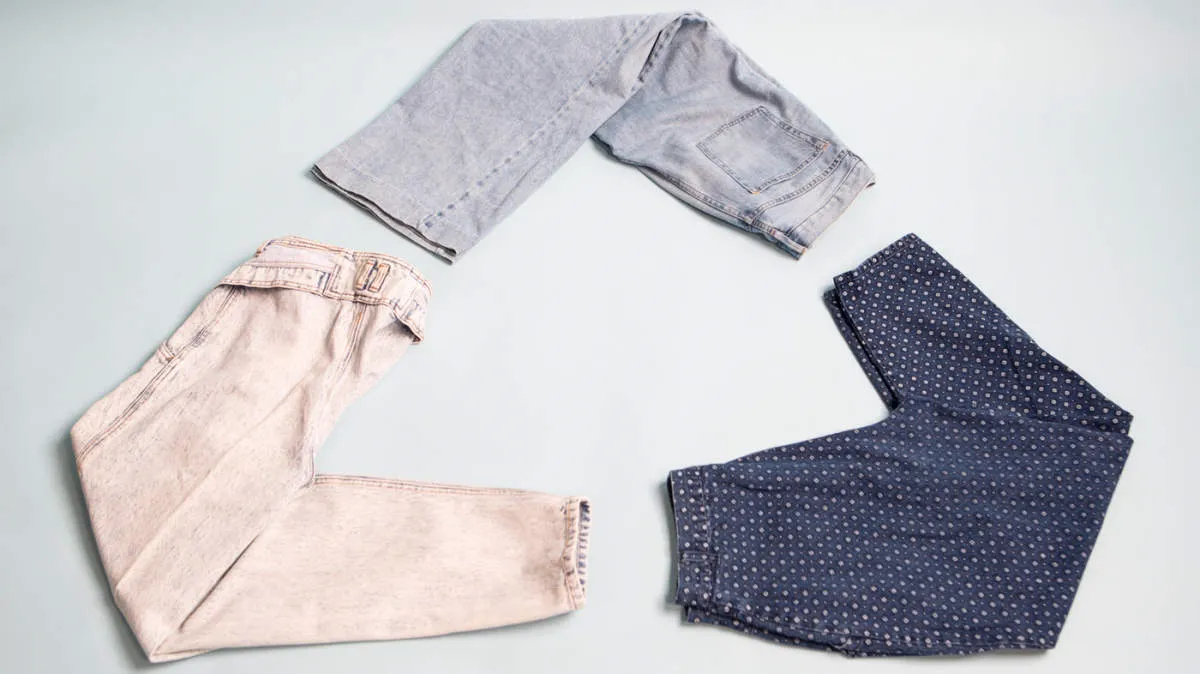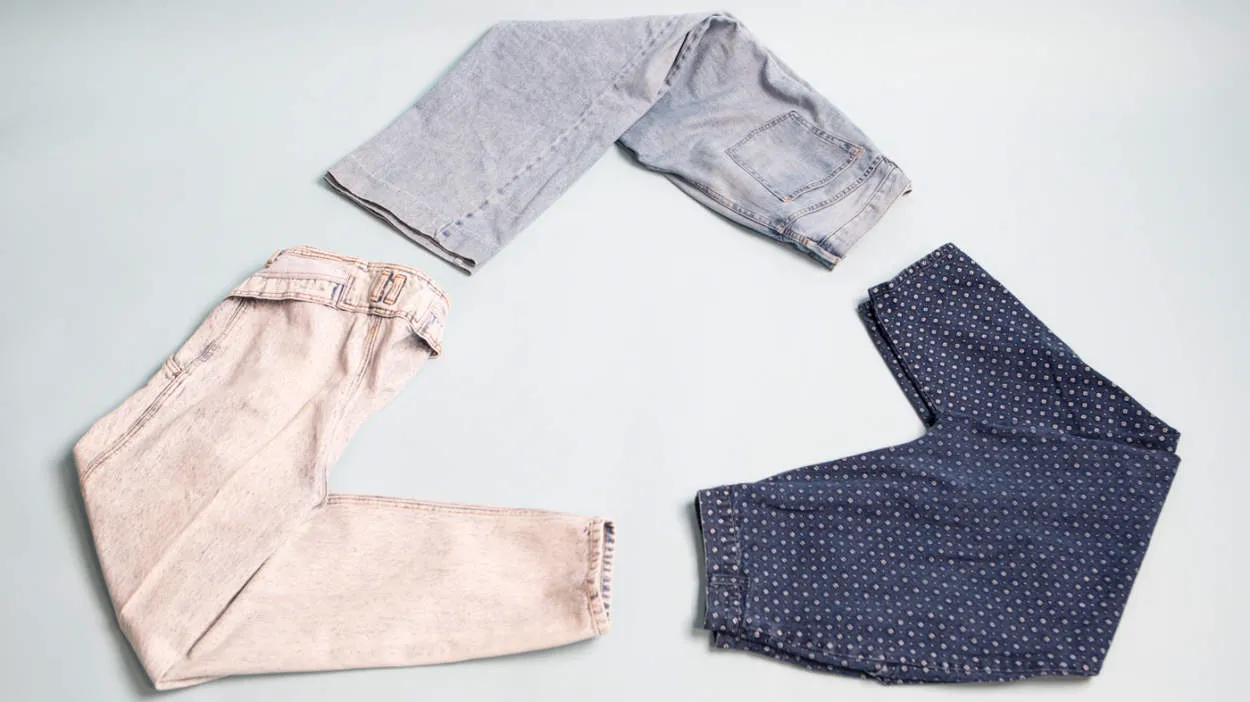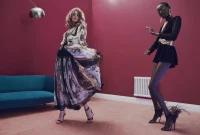Ethical Fashion: Making Choices that Make a Difference. In a world where fast fashion dominates the industry, ethical fashion emerges as a crucial movement. This article delves into the importance of making conscious choices when it comes to fashion and explores how ethical fashion can have a positive impact on the environment and society.
Understanding the Ethics of Fashion Production

Fashion production plays a significant role in our global economy, but its impact extends far beyond business and trends. The ethics of fashion production have gained increasing attention in recent years, as consumers and industry leaders alike recognize the need for sustainable and responsible practices.
The Environmental Impact
One of the primary concerns surrounding fashion production is its environmental impact. From the use of toxic chemicals in dyeing fabrics to the high levels of water consumption and waste generated, the fashion industry has a significant carbon footprint.
However, with the rise of ethical fashion, many brands are now adopting eco-friendly practices. They are investing in sustainable materials, such as organic cotton and recycled fibers, and implementing techniques that minimize waste and pollution. By making conscious choices, we can support brands that prioritize the environment.
Worker Exploitation
Another ethical issue in fashion production is the exploitation of workers, particularly in developing countries. Sweatshops, low wages, and poor working conditions have long plagued the industry. It is crucial to support brands that ensure fair labor practices and provide safe working environments.
Fortunately, various certifications and initiatives have been established to tackle worker exploitation in the fashion industry. Examples include Fair Trade certification and the Ethical Trading Initiative. By choosing ethically produced fashion, we can contribute to improving the lives of garment workers and promoting fair wages.
Animal Welfare
Animal welfare is yet another aspect of ethical fashion production. The use of fur, exotic skins, and animal testing for clothing production has raised concerns among consumers who value animal rights. As a result, many designers and brands are opting for cruelty-free alternatives.
By supporting fashion brands that prioritize animal welfare, we can encourage a shift towards more compassionate practices in the industry. Look for labels and certifications like “vegan,” “cruelty-free,” or those recognized by organizations like PETA.
The Power of Consumer Choices
Ultimately, understanding the ethics of fashion production empowers us as consumers to make informed choices. By supporting brands that prioritize sustainability, fair labor practices, and animal welfare, we can contribute to positive change within the industry.
It is essential to research and educate ourselves about a brand’s values, certifications, and transparency. Together, our collective actions can shape a more ethical and responsible fashion industry.
Brands Leading the Way in Ethical Fashion
Ethical fashion is becoming increasingly important as consumers are starting to make choices that align with their values. They are looking for brands that prioritize social and environmental responsibility throughout their entire supply chain. Here are some brands that are leading the way in ethical fashion:
1. Patagonia
Patagonia is a renowned brand that is committed to environmental sustainability. They use recycled materials in their products, and actively work towards reducing their carbon footprint. Patagonia also gives back to communities and supports various environmental initiatives.
2. Everlane
Everlane focuses on transparency and ethical production. They provide customers with information about the factories they work with and the costs behind each item. Everlane is known for their high-quality basics and fair pricing.
3. Stella McCartney
Stella McCartney is a luxury fashion brand that is dedicated to sustainable and cruelty-free fashion. They do not use any fur or leather in their designs, and prioritize ethical and responsible practices throughout their business.
4. People Tree
People Tree is a pioneer in fair trade and sustainable fashion. They work closely with artisans and farmers in developing countries to create unique and eco-friendly designs. People Tree ensures fair wages and safe working conditions for their workers.
5. Eileen Fisher
Eileen Fisher is known for their timeless designs and commitment to sustainability. They prioritize organic and recycled materials, as well as ethical manufacturing processes. Eileen Fisher also has a take-back program where customers can return their old clothing for recycling.
These brands are just a few examples of the many companies that are leading the way in ethical fashion. By supporting brands that prioritize sustainability and responsibility, consumers can make a positive impact on the fashion industry.
The Role of Consumer Choice in Fashion Ethics
In the realm of fashion, consumer choice plays a pivotal role in driving and shaping ethical practices. As individuals, the decisions we make when purchasing clothing have far-reaching consequences that can either uphold or challenge the existing fashion system. By making conscious and informed choices, we have the power to advocate for positive change and demand greater transparency and accountability from industry stakeholders.
One key aspect of consumer choice is considering the ethical implications of our garment purchases. This entails delving into the production processes, materials used, and labor conditions involved in creating the clothes we wear. Ethical fashion brands prioritize sustainable sourcing, fair trade, and safe working conditions. By supporting these brands, consumers can actively contribute to a more sustainable and equitable fashion industry.
Another important factor in consumer choice is scrutinizing the treatment of animals in the fashion industry. Many brands still employ practices that involve unethical treatment, such as fur farming or testing cosmetics on animals. By opting for cruelty-free and vegan alternatives, consumers can send a powerful message against the exploitation of animals.
Consumer choice also extends to the concept of slow fashion. Instead of following the fast-paced trends and disposable culture prevalent in the industry, consumers can embrace a more mindful approach. This involves investing in timeless and durable pieces, repairing and upcycling clothing, and reducing overall consumption. By prioritizing quality over quantity, consumers can contribute to reducing waste and the environmental impact of the fashion industry.
Furthermore, consumers have the ability to amplify their impact by actively supporting and engaging with fashion brands that prioritize sustainability and ethical practices. This can be achieved through online activism, sharing information on social media, and participating in campaigns that promote conscious fashion choices.
In conclusion, consumer choice plays a vital role in driving ethical practices in the fashion industry. By making conscious decisions, we can support brands that align with our values and demand greater accountability. Through educated choices, we can contribute to a more sustainable, humane, and transparent fashion system.
Ethical Fashion Certifications to Know
In the world of fashion, the issue of ethics has gained significant attention. As consumers become more aware of the environmental and social impacts of the industry, many are seeking out fashion products that align with their values. To ensure that the garments they purchase are genuinely ethical, consumers can look for certain certifications. These certifications serve as verifications of a brand’s commitment to ethical practices throughout their supply chain. Here are some important ethical fashion certifications to know:
1. Fairtrade
Fairtrade certification ensures that producers in developing countries receive fair compensation for their work and have safe working conditions. This certification focuses on fair wages, no child labor, and gender equality. When you see the Fairtrade logo, you can trust that the product was made with respect for workers’ rights.
2. Global Organic Textile Standard (GOTS)
GOTS guarantees the organic status of textiles from the harvesting of raw materials to the finished product. This certification monitors the entire production process to ensure that no harmful chemicals are used, environmental standards are met, and workers’ rights are protected. Products with the GOTS label are both environmentally friendly and socially responsible.
3. Ethical Trading Initiative (ETI) Base Code
The ETI Base Code ensures that workers’ rights are upheld, including the right to collective bargaining, safe working conditions, and fair wages. This certification addresses issues such as discrimination, forced labor, and child labor. Brands that comply with the ETI Base Code prioritize the well-being of their workers.
4. Certified B Corporation
Certified B Corporations aim to balance purpose and profit. These businesses meet rigorous social and environmental standards to achieve B Corp certification. In the fashion industry, this certification indicates a brand’s commitment to using business as a force for good.
By familiarizing yourself with these ethical fashion certifications, you can make more informed choices when shopping for clothes. Remember to look for these logos and labels as indications that the brand has taken steps to ensure their products are ethically made. Together, we can support a fashion industry that makes a positive difference.
How to Spot Greenwashing in Fashion
As ethical fashion continues to gain popularity, consumers are becoming more conscious of the impact their clothing choices have on the environment. However, not all brands claiming to be sustainable are truly living up to their promises. Greenwashing, the act of falsely portraying products or brands as environmentally friendly, is common in the fashion industry. To ensure that your fashion choices truly make a difference, here are some key tips on how to spot greenwashing:
-
Investigate the brand’s certifications
Many legitimate sustainable fashion brands obtain certifications to demonstrate their commitment to ethical practices. Look for certifications like Fairtrade, Global Organic Textile Standard (GOTS), or Bluesign, which all have strict criteria to ensure sustainable and ethical production.
-
Examine the brand’s transparency
A truly sustainable brand will be open and transparent about their supply chain, manufacturing processes, and environmental impact. Look for brands that disclose detailed information about sourcing materials, labor conditions, and the steps they take to minimize their carbon footprint.
-
Assess the longevity and quality of the products
Authentic sustainable fashion focuses on creating high-quality, durable pieces that withstand the test of time. Be wary of brands promoting frequent seasonal collections or fast fashion trends. Sustainable fashion encourages consumers to invest in timeless pieces that can be worn for years.
-
Research the brand’s overall commitment
Check if the brand extends its sustainability efforts beyond marketing claims. Look for initiatives such as recycling programs, donations to social causes, or participation in environmental campaigns. Genuine ethical brands often strive to make a positive impact beyond their products.
By being vigilant and informed consumers, we can effectively identify greenwashing and make truly ethical fashion choices that contribute to a better future for both people and the planet.
Building an Ethical Wardrobe on a Budget
When it comes to fashion, making choices that prioritize sustainability and ethics can often be seen as a luxury only accessible to those with a hefty budget. However, building an ethical wardrobe doesn’t have to break the bank. With some thoughtful planning and conscious decision-making, you can create a wardrobe that aligns with your values without compromising your finances.
1. Assess Your Current Wardrobe
Start by taking a look at your current wardrobe. Identify items that are versatile, well-made, and timeless. These pieces will form the foundation of your ethical wardrobe. Consider donating or selling clothes that you no longer wear to make space for new, conscious purchases.
2. Prioritize Quality over Quantity
In the world of fast fashion, it can be tempting to buy inexpensive, trendy items. However, these clothes are often produced in unsustainable ways and have a short lifespan. Instead, invest in high-quality items that will last longer. Look for garments made from organic, recycled, or ethically sourced materials.
3. Embrace Second-Hand Shopping
Thrifting and shopping at consignment stores can be a treasure trove for finding unique and affordable pieces. Buying second-hand not only reduces the demand for new production but also gives a new life to pre-loved clothes. Explore online platforms or local thrift stores for hidden gems.
4. Research Ethical Brands
Supporting brands that prioritize ethics and sustainability is a crucial step in building an ethical wardrobe. Do your research to find ethical brands that align with your values and budget. Look for certifications such as Fair Trade, GOTS (Global Organic Textile Standard), or B Corp, which indicate a brand’s commitment to ethical practices.
5. Rent or Borrow for Special Occasions
For special occasions or events that require a specific outfit, consider renting clothes or borrowing from friends or family. This reduces the need for purchasing items that might be worn only once and promotes a sharing economy within your community.
6. Take Care of Your Clothes
Extend the lifespan of your garments by taking proper care of them. Follow care instructions, mend any minor damages, and store them appropriately. By maintaining your clothes, you’ll reduce the frequency of replacements and contribute to the longevity of your ethical wardrobe.
7. Keep Learning and Evolving
Building an ethical wardrobe is an ongoing process. Stay informed about new sustainable fashion practices, materials, and brands. Engage with online communities or forums that discuss ethical fashion, and share your own experiences and recommendations.
Conclusion
Ethical fashion is not just a trend; it is a necessary step towards creating a more sustainable and fair industry. By making conscious choices in our shopping habits, we can support brands that prioritize ethical production, fair wages, and environmentally friendly practices. Each purchase we make is an opportunity to make a positive impact and contribute to a better future for both the workers and the planet.



